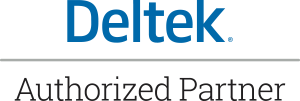How Monograph Project Accounting Optimizes Resource Allocation
Wiki Article
Checking Out the Trick Features of Monograph Audit for Successful Accounting Professionals

Defining Monograph Accounting: A Comprehensive Overview
Monograph bookkeeping represents a specialized strategy within the more comprehensive field of economic reporting. This method highlights the methodical and in-depth documents of financial transactions and their implications. Unlike conventional audit, Monograph accounting is usually customized to one-of-a-kind situations or details industries, supplying a focused framework for evaluation and coverage. It enables accountants to delve much deeper into particular locations, providing a detailed view that straightens carefully with business objectives.A vital function of Monograph bookkeeping is its adaptability; it can include various audit requirements and practices as required. This flexibility makes it possible for accountants to generate records that are not only exact but additionally appropriate to stakeholders. Additionally, the approach typically involves extensive research study and examination of monetary data, making sure that every aspect is completely understood and recorded. Hence, Monograph bookkeeping serves as a vital device for accountants aiming to give insightful financial evaluations tailored to certain contexts.
The Value of Quality and Accuracy in Financial Reporting

Inaccurate or uncertain coverage can lead to misdirected approaches, eroded depend on among financiers, and governing scrutiny. As a result, accountants need to focus on accuracy in their work, making sure that numbers are carefully confirmed and monetary stories are systematic. This not only fosters transparency yet additionally boosts the total integrity of the company.
Ultimately, clarity and accuracy in monetary reporting are crucial for keeping stakeholder self-confidence and promoting sustainable company development. Accountants play a critical role in promoting these requirements, making their know-how very useful in navigating the complexities of monetary data.
Improving Decision-Making Processes Through Monograph Accounting
Performance in decision-making procedures is substantially improved through the concepts of Monograph accounting. By combining extensive financial information into a particular, systematic framework, accountants can rapidly access crucial details necessary for educated selections. This approach minimizes the time spent on data access and analysis, permitting an extra nimble response to monetary circumstances.Monograph audit highlights clear classification and thoughtful company of financial transactions, which decreases mistakes and miscommunication. When accounting professionals use these concepts, they can present financial understandings in an organized way, facilitating discussions amongst stakeholders.
Furthermore, the standardization intrinsic in Monograph accounting allows seamless contrasts throughout different durations or departments, even more assisting in critical preparation. This structured technique not only optimizes the interior processes of accountancy specialists but also boosts the total organizational agility, encouraging services to adjust to changing market conditions quickly.
Key Advantages for Accounting Professionals and Their Customers
While adopting Monograph audit might call for a preliminary financial investment of time and resources, the long-lasting benefits for both accountants and their customers are substantial. This accountancy approach advertises improved precision and openness, enabling accountants to preserve clearer financial records. By settling information into a particular story, customers acquire better understandings right into their monetary health and wellness, promoting informed decision-making.Monograph bookkeeping promotes stronger client relationships via enhanced communication. Accountants can present monetary data in a much more digestible style, making it simpler for customers to recognize complex details. This clarity not only builds depend on however additionally Monograph Accounting encourages aggressive financial administration
In addition, the streamlined procedures connected with Monograph accountancy minimize the likelihood of mistakes, which can conserve both money and time. Eventually, the assimilation of this technique leads to extra efficient procedures, allowing accountants to give higher quality solution while equipping clients with enhanced monetary understanding and control.
Practical Applications of Monograph Accountancy in Numerous Industries
In what ways can monograph bookkeeping transform numerous industries? By giving a focused and extensive approach to financial coverage, Monograph audit boosts quality and accuracy across diverse fields. In health care, as an example, it helps with the exact monitoring of patient prices and resource allotment, eventually boosting economic administration. The production sector gain from its organized evaluation of manufacturing prices, permitting for much better prices techniques and earnings analyses.In the retail market, Monograph accounting assists in stock management and sales projecting, aiding companies maximize supply levels and lower waste. In the nonprofit market, it assists in clear coverage of grant funding and resource use, fostering depend on amongst stakeholders. Generally, Monograph audit's customized techniques enable organizations to accomplish economic transparency and functional efficiency, making it a very useful tool throughout numerous markets. Its adaptability makes sure that organizations can fulfill details bookkeeping needs while maintaining compliance with regulations.
Frequently Asked Inquiries
What Software Is Finest for Executing Monograph Bookkeeping?
The ideal software for applying Monograph accountancy includes copyright, Xero, and Sage. These systems supply comprehensive features tailored for efficient tracking, reporting, and monitoring of economic information, assisting in structured bookkeeping processes for professionals.Exactly How Does Monograph Accountancy Differ From Traditional Audit Techniques?
Monograph bookkeeping focuses on private projects or customers, emphasizing thorough tracking and reporting for particular entities, while standard bookkeeping accumulations information throughout all entities, focusing on general economic health and wellness as opposed to project-specific understandings and performance.What Are Usual Difficulties Accountants Confront With Monograph Bookkeeping?
Accountants typically come across challenges with Monograph accountancy, including intricacy in financial coverage, combination with existing systems, making certain compliance with regulations, adapting to unique customer needs, and managing the in-depth paperwork needed for accurate evaluations.
Exist Specific Rules Governing Monograph Audit Practices?
Yes, certain regulations typically govern Monograph accounting practices, including adherence to nationwide accounting standards, compliance with tax obligation laws, and industry-specific standards. Accounting professionals have to continue to be educated to ensure their techniques align with these established structures.Exactly How Can Accountants Stay Updated on Monograph Audit Trends?
Accounting professionals can remain updated on Monograph accounting patterns by subscribing to sector publications, attending pertinent workshops and conferences, joining specialist organizations, and involving with online forums dedicated to accounting requirements and finest techniques. (Monograph Consultants)Monograph accounting presents an one-of-a-kind structure that enhances economic reporting for accounting professionals. Unlike typical accountancy, Monograph audit is often customized to specific markets or unique situations, offering a focused structure for analysis and reporting. A key attribute of Monograph accountancy is its versatility; it can include numerous bookkeeping standards and methods as required. By supplying a focused and comprehensive method to economic coverage, Monograph audit boosts clarity and accuracy throughout diverse sectors. Yes, certain regulations often govern Monograph accountancy practices, including adherence to national accountancy criteria, conformity with tax obligation laws, and industry-specific standards.
Report this wiki page